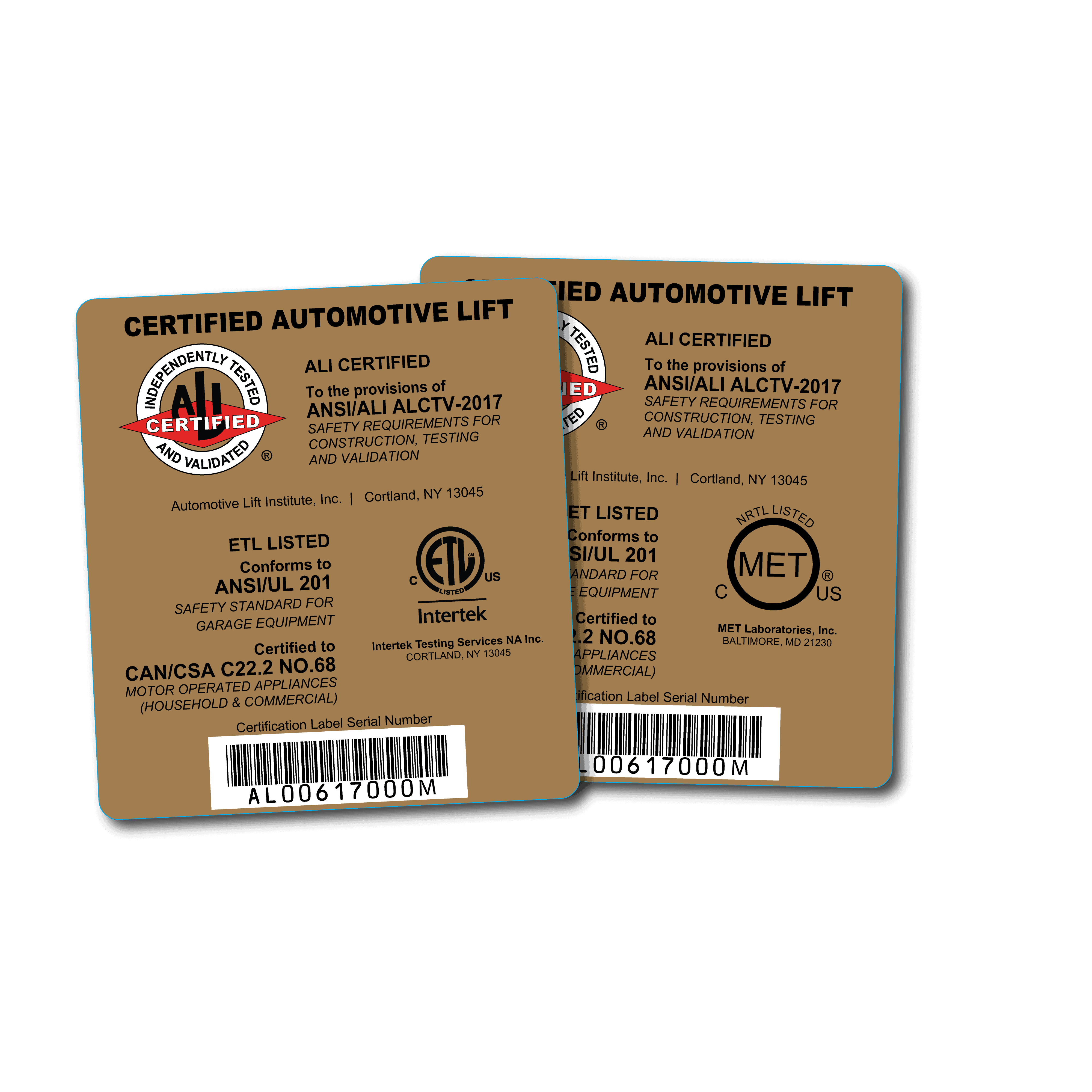There’s more riding on your vehicle lift than cars and trucks. If you’re the technician who relies on a car lift to get your job done every day, your safety is riding on it. If you’re the shop owner, service manager or dealer whose livelihood depends on your technicians’ safety and performance, your business is riding on it. With so much riding on your automotive lifts, it’s crucial that they are chosen with care.
The safety standard covering the design, construction and performance of car lifts in North America is ANSI/ALI ALCTV (current edition): “Safety Requirements for the Construction, Testing, and Validation of Automotive Lifts.” Not all lifts sold in North America meet the requirements outlined in this standard.
The ALI Lift Certification Program is the only accredited program in North America to independently test and validate that a car lift model meets all ANSI/ALI ALCTV safety and performance requirements. So when you’re in the market to buy a car lift, the only way to know that a lift has been third-party tested and certified to meet this standard is to buy an ALI Certified Lift.
The ALI Lift Certification Program has authorized two nationally accredited testing laboratories (NRTLs) to test vehicle lifts to determine whether they meet the requirements of the ANSI/ALI ALCTV lift safety standard. These labs are Intertek (Cortland, N.Y.) and MET Laboratories (Baltimore, Md.).
Lift testing includes verification of the structural integrity of all the lift’s systems and components, proper function of its controls and load-holding devices, proper lowering speeds, and overload protection. Part of the testing process involves overloading the lift (which should never be done outside a laboratory setting) and ensuring that no visual deformation of any of its structural elements or components occurs.
The lab also reviews the instructional materials provided with each lift or hoist to ensure they meet requirements outlined in the standard. In order for a lift to be certified, the manufacturer’s production facility also must meet quality control requirements. Lifts can be tested and certified regardless of where they are manufactured and whether or not the manufacturer is an ALI member.
Lifts that have been tested by one of the approved labs and found to meet all of the requirements outlined in the ANSI/ALI standard receive an ALI Gold Certification Label and are listed in the ALI Directory of Certified Lifts. If a lift model is not listed in the directory, it is not certified. Note that certification is for an individual lift model, not the lift manufacturer. If a manufacturer has one ALI-certified lift, that does not mean that all of its lifts are certified.
One more thing—a lift failure can result in serious injuries or death. It’s critical to your safety and the safety of others in the shop that when you buy a car lift or truck lift, you focus first on safety by choosing only ALI Certified Lifts.
The International Building Code (IBC), U.S. Occupational Safety and Health rules, and provincial regulations in Canada all require that every lift installed within their jurisdictions be certified to meet ANSI/ALI ALCTV. But unless mandated by an authority having jurisdiction (AHJ), lift testing and certification is voluntary for most manufacturers in North America. That means responsibility for buying certified lifts rests with you, the customer. Be an educated consumer! Always look for the ALI Gold Certification Label before buying a vehicle lift.

Quick Links
Contact Us